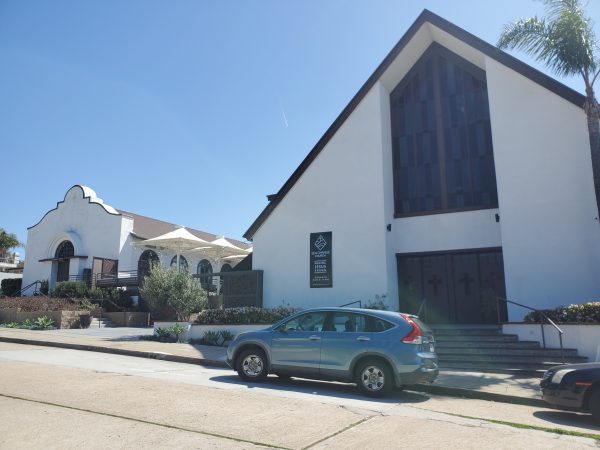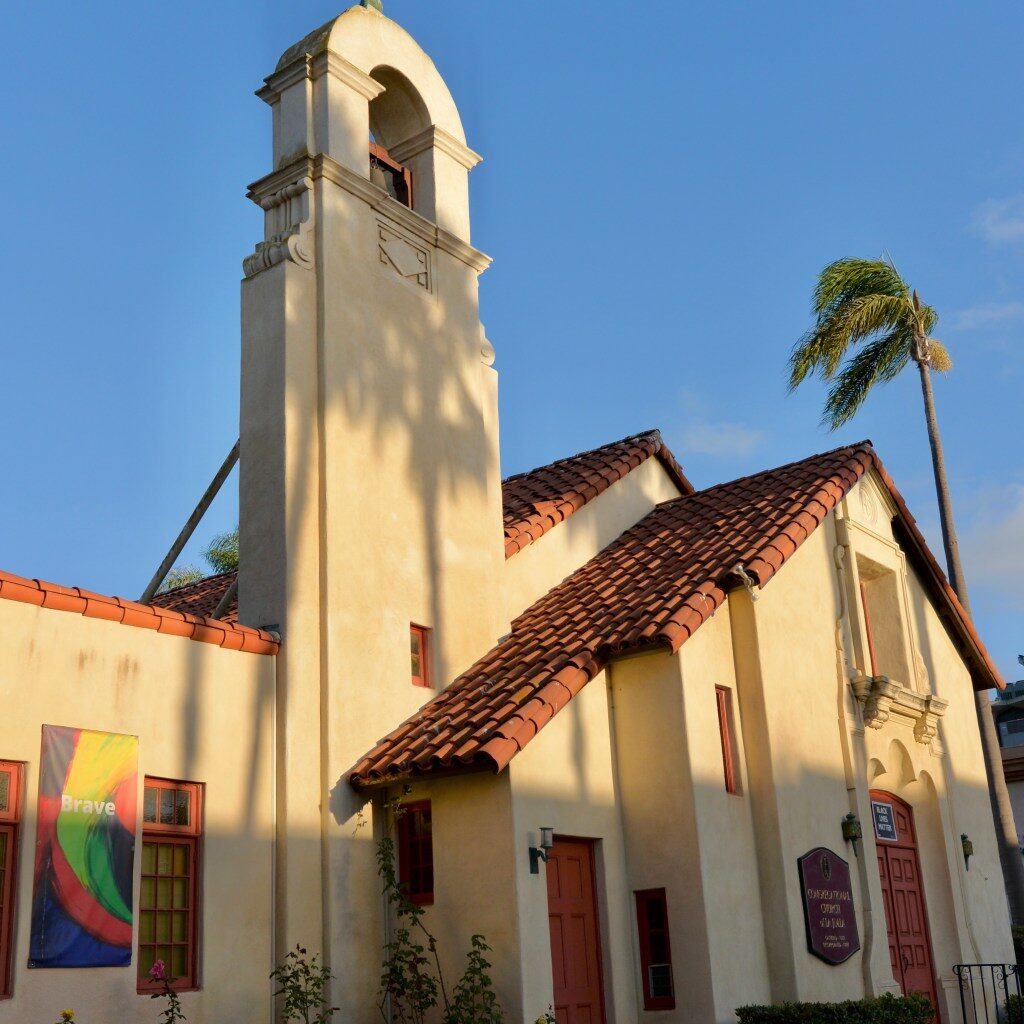A recent study from UC San Diego says up to 5,000 affordable homes could be built in San Diego County on properties owned by faith-based organizations. But whether that happens will depend both on individual spaces and the owners’ willingness to convert the land into housing.
UCSD’s Center for Housing Policy and Design says it aims to “close the housing research and policy gap” in the San Diego and Tijuana region. According to its website, the group was formed out of a desire to tackle what it describes as a regional housing problem.
The center’s study, completed in May, explores California’s Senate Bill 4, titled the Affordable Housing on Faith and Higher Education Lands Act, which passed in 2023.
It gives faith-based institutions and nonprofit colleges “by-right” approval to develop their land with projects considered affordable for lower-income households. “By right” means the projects can avoid many elements of municipal review.
SB 4 therefore “unlocks” previously unavailable land for such housing, the study states.
Using government data, researchers explored the amount and characteristics of SB 4-eligible land in San Diego County. Their findings include:
• About 3,600 acres across 1,300 parcels are eligible for housing approval under SB 4.
• Faith-based organizations own 96% of that SB 4-eligible land, with the remainder owned by nonprofit higher-education institutions.
• 39% of the eligible land is already zoned for residential or mixed uses.
• Most eligible parcels are close to public transit and green space.
The study says 791 SB 4-eligible acres are in the city of San Diego, with an average parcel size of 1.48 acres — making up nearly 25% of the eligible faith-based-owned acres in the county. The largest share, 37%, was in unincorporated areas.
Developing housing on 10% of eligible land could create roughly 5,000 units, researchers say. Using 1% of eligible land could create 246 units, they say.
“The extent to which San Diego is able to take advantage of SB 4 will depend on local interest from faith-based organizations and their ability to source funding,” according to the study.
It also will depend on whether individual properties have enough space to accommodate housing.
The Rev. Adam Stadtmiller, pastor at Sea Change Church in La Jolla, said the idea of building affordable housing on land owned by faith-based institutions is “nuanced,” including the issue of maintaining what some church leaders describe as “communal sacred space.”
“We are called to be part of the solution to people experiencing homelessness,” Stadtmiller said. “The balancing factor is, there’s a limited amount of communal sacred space and it’s diminishing. And that space is also important for a thriving community to exist.”
Stadtmiller said Sea Change Church, at 627 Genter St., lacks space to accommodate affordable housing.
 Sea Change Church at 627 Genter St. in La Jolla lacks space to accommodate affordable housing, according to pastor Adam Stadtmiller. (Ashley Mackin-Solomon)
Sea Change Church at 627 Genter St. in La Jolla lacks space to accommodate affordable housing, according to pastor Adam Stadtmiller. (Ashley Mackin-Solomon)
“Some churches are able to do it and it makes sense,” Stadtmiller said. “But for others with limited sacred space, it doesn’t make sense.”
A larger institution that has expressed interest in developing affordable units on its land is United Church of Christ.
The Rev. Tim Seery, pastor at Congregational Church of La Jolla — one of 130 United Church of Christ congregations in Southern California — said that although the La Jolla church at 1216 Cave St. lacks the space to accommodate housing, UCC at large has explored the concept and even adopted it at University Christian Church in Hillcrest.
Several other congregations in UCC are “actively looking at developing their campuses,” he said.
“I think faith communities that have the land, space and ability have a moral imperative to consider the ways that their assets and properties might be used to serve the community through the development of affordable-housing units,” Seery said.
“At the wider church level, we are really sinking our teeth into affordable housing and even have provided churches with training about how to get these projects off the ground and have provided grant funding to others looking to do this as well.”
Grant funding was the catalyst for an effort at Christ Lutheran Church in Pacific Beach.
The Compass Station, a nonprofit on the church’s campus, applied for a county grant in partnership with the church and was approved in 2024 to receive funding for six sleeping quarters as temporary housing for its workforce training program, according to the Rev. Kinndlee Lund, the church pastor.
And Seery noted that Neighborhood Congregational Church in Laguna Beach also got an affordable-housing project off the ground. ♦
